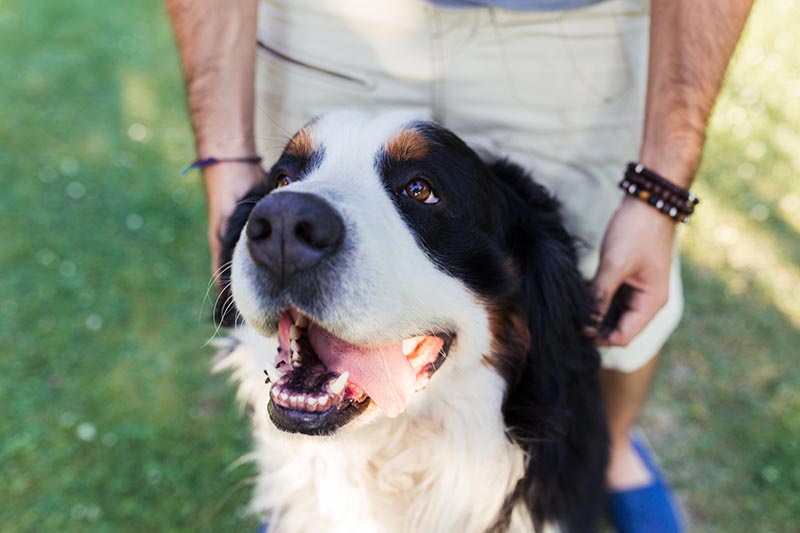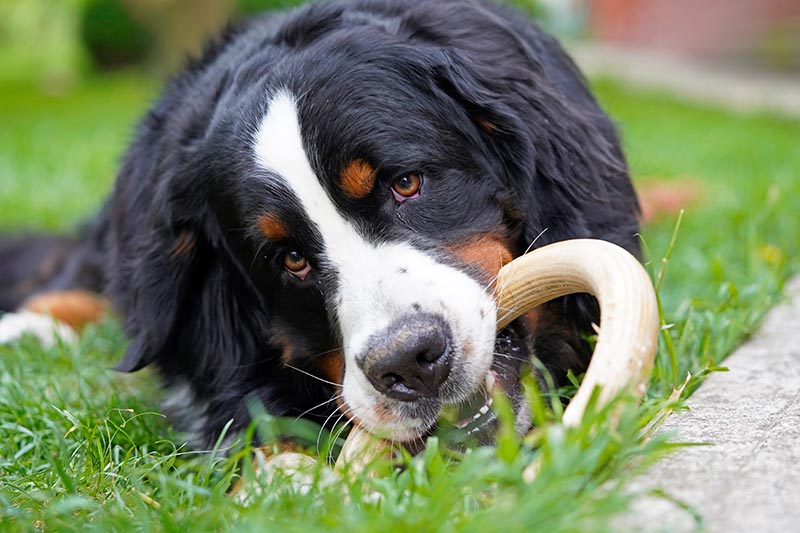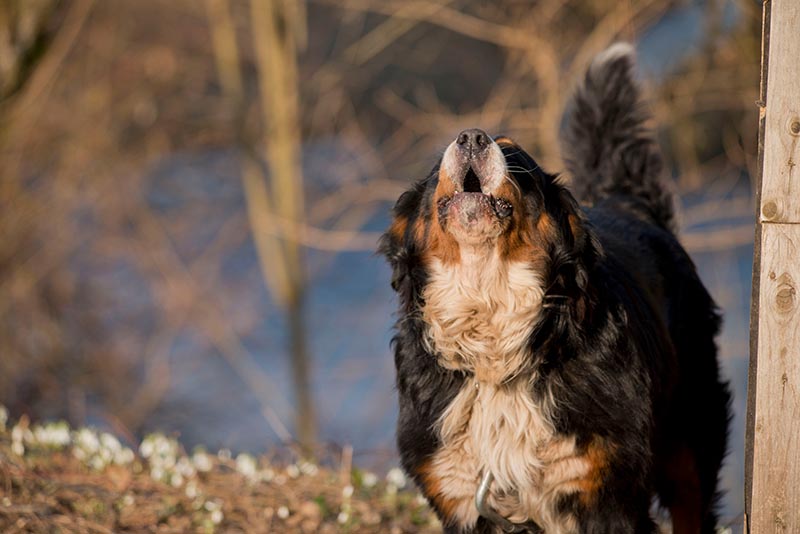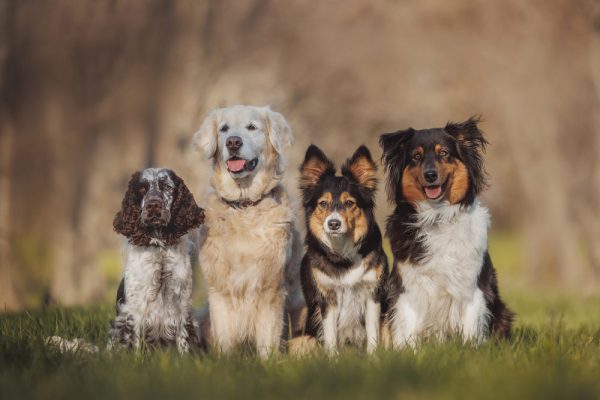Bernese Mountain Dogs make great family pets, but like any dog, before bringing them home, you should know how much they typically bark, to ensure that you won’t bother the neighbors. Fortunately, this breed isn’t excessively vocal and generally falls somewhere in the middle of the barking spectrum when compared with other dogs.
Keep reading as we explain what that means and discuss a few things that can affect how much your pet barks so you can keep it to a minimum.

Do Bernese Mountain Dogs Bark Excessively?
How much your Bernese Mountain Dog barks can vary significantly from one dog to the next depending on various factors including their individual temperament, socialization, and environment. However, most Bernese Mountain Dogs are laidback and easy-going, so they don’t tend to bark as much as many smaller or more excitable dogs.
However, while they are known for their generally calm nature, they are good watchdogs due to their working history and will typically bark if they signal someone approaching or if they hear something out of the ordinary. When they want to tell you something, they will bark like any other dog and are quite loud.
Why Is My Bernese Mountain Dog Barking?
To Communicate
The ancestors of the Bernese Mountain Dog were farm dogs that worked and protected the property. It’s their instinct to bark to notify their owners that their task is complete or that a stranger is on the property, among other things. They are not afraid to bark to get your attention when they need to tell you something and will continue until you pay attention.
To Greet
It’s common for the Bernese Mountain Dog to bark excitedly when greeting you. Fortunately, this barking won’t last long and usually stops once you say hello and acknowledge them.

In Fear
Like most dogs, Bernese Mountain dogs will bark if they are frightened. This can be due to a variety of things including loud noises, like fireworks or cars backfiring, or strangers. If your dog gets scared or alarmed by something they will typically show other body language signs that indicate fear, such as holding their ears back and tail tucked. They may crouch or try to retreat from whatever is causing the fear.
If possible, remove your dog from whatever is frightening them. Over time you can reduce fear barking through gradual desensitization training to the trigger, which is usually best done alongside a canine behaviorist.
To Protect
If your Bernese Mountain Dog perceives something as a threat or danger to you, they will immediately jump into action and start barking to warn you and scare off the threat. It could be a stranger walking onto your property or an animal on the trail during your morning walk that causes your pet to bark. They will continue until the threat is gone or you convince them that there is no threat.

Out of Boredom
The Bernese Mountain Dog forms a strong bond with their owners and doesn’t like being alone for too long. They can get bored quickly and will often bark to get attention. Making sure they have adequate exercise to tire them out before you leave them is important, and providing interactive or food dispensing toys, such as Kongs, can also be helpful to keep them busy while you’re out.
You can consult a veterinarian or a behaviorist on the best methods for training your dog and get some advice on tackling excessive barking.
If you need to speak with a vet but can't get to one, head over to PangoVet. It's our online service where you can talk to a vet online and get the advice you need for your pet — all at an affordable price!

Other Interesting Facts About Bernese Mountain Dogs
- A nickname for the Bernese Mountain Dog is Berner.
- The Bernese Mountain Dog can do many farm jobs, including drafting, droving, herding, and acting as a guard dog.
- These dogs enjoy cold, snowy weather, and you will have trouble keeping them inside even during harsh weather.
- The Bernese Mountain Dog has a double coat and is a heavy shedder. They require frequent brushing.
- The Bernese Mountain Dog likes to be with their owners and is prone to separation anxiety when left alone.

Conclusion
The Bernese Mountain Dog is considered a medium barker. They primarily bark as a form of communication when they perceive a threat. While there will be individual variation between different dogs, Berners are generally calm and easy-going dogs that are happy to sit quietly until they hear a loud noise or a stranger walking by the yard. They can also start barking to say hello when you get home from work or to greet an old friend and will often start barking if you leave them alone too long.
Bernese Mountain dogs are intelligent and receptive to training. If your dog has had adequate socialization, and has regular exercise and mental stimulation, they can usually be trained to bark only when necessary.
See Also:
- How Much Do Labradoodles Bark? Facts & Training Tips
- How Much Does It Cost to Own a Bernese Mountain Dog? Price Guide
Featured Image Credit: Marefoto, Shutterstock


















